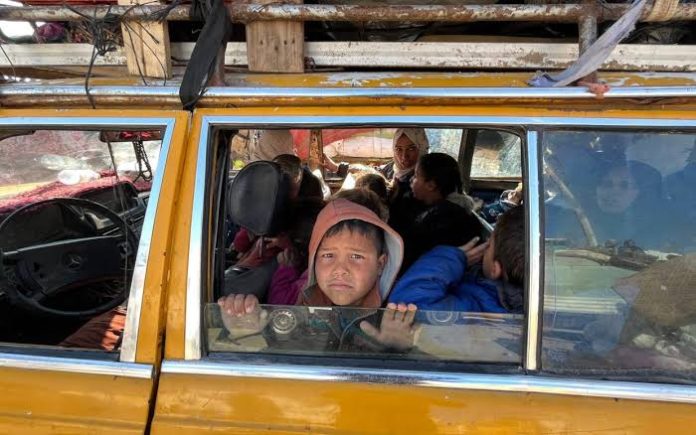Facebook Twitter Instagram Somali Magazine - People's Magazine
Puntland, an autonomous region in Somalia, has expressed openness to hosting Gazan refugees if the relocation is voluntary. The potential resettlement comes in response to a proposal by U.S. President Donald Trump, who suggested moving Palestinians from Gaza to “far safer and more beautiful” regions, including Puntland and the self-declared independent state of Somaliland.
Yacob Mohamed Abdalla, Puntland’s deputy minister of information, emphasized that any relocation must be voluntary. “There is no reason to deport someone from his country to another country without that person choosing to move,” he told The Telegraph. Despite rejecting forced relocation, Abdalla welcomed the idea of free movement, noting that it aligns with international law.
Puntland, located at the northern tip of the Horn of Africa, was once known for piracy but has since transitioned into a relatively stable region with a developing economy. However, it still faces economic challenges, with a GDP per capita estimated at $507 in 2022. Security remains a concern in remote areas where Islamic State affiliates maintain a presence.
On Saturday, U.S. forces conducted airstrikes in Puntland, targeting what the Pentagon described as a senior Islamic State attack planner and other militants. The strikes underscore ongoing security issues in the region despite its recent development strides.
Abdullahi Mohamed Jama, a former spokesperson for the Puntland state government, voiced support for hosting Gazan refugees, suggesting it could bring international recognition and economic benefits. “Gazans are Islamic people, like Puntlanders, and would contribute to the modernizing and development of the state,” he stated. Jama cited the example of Yemeni refugees who fled the war and brought “technological expertise” to Puntland.
He further argued that accepting Gazans could elevate Puntland’s international status and attract security and economic development assistance. “It’s best to take advantage of the unplanned opportunities that sometimes arise,” he added.
However, Gazans interviewed by The Telegraph rejected the relocation proposal, denouncing it as a veiled attempt at ethnic cleansing. “We will not leave Gaza,” several residents declared, expressing their determination to remain in their homeland despite the ongoing challenges.
The proposal has sparked widespread controversy, with critics highlighting significant humanitarian, legal, and political concerns. Gaza holds deep historical and cultural significance for Palestinians, making any forced resettlement a highly sensitive issue.
The international community remains divided on the matter, with some viewing the relocation proposal as a pragmatic solution to ongoing conflict and others condemning it as a violation of Palestinian rights.
As the debate continues, Puntland’s willingness to host refugees underscores its aspirations to play a more prominent role on the international stage. However, the question remains whether Gazans will voluntarily leave their homeland or continue to resist relocation efforts.

